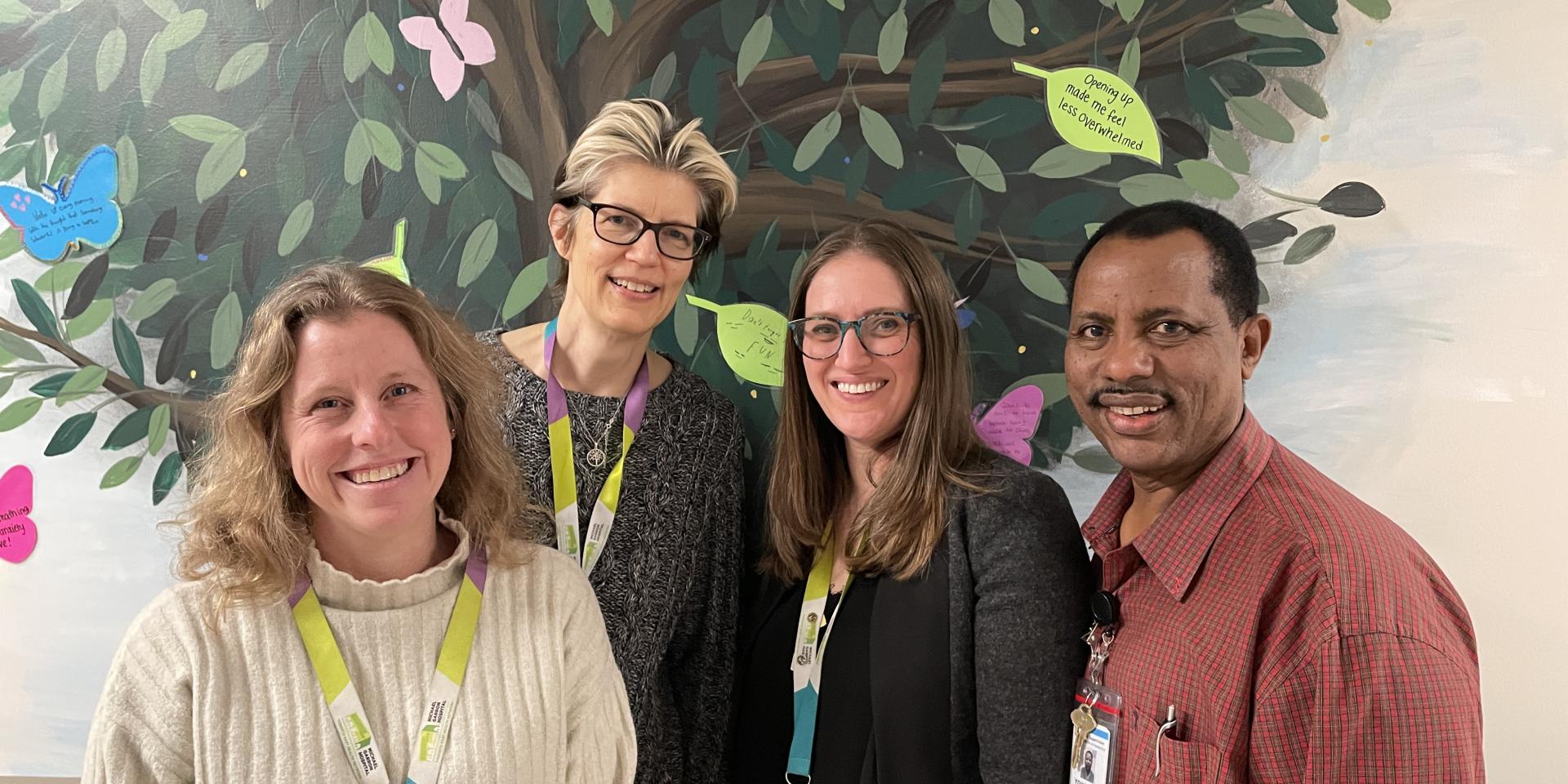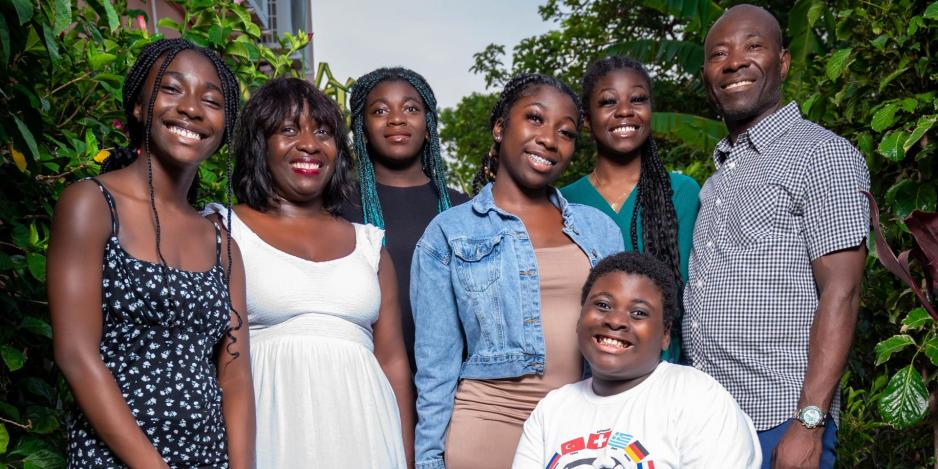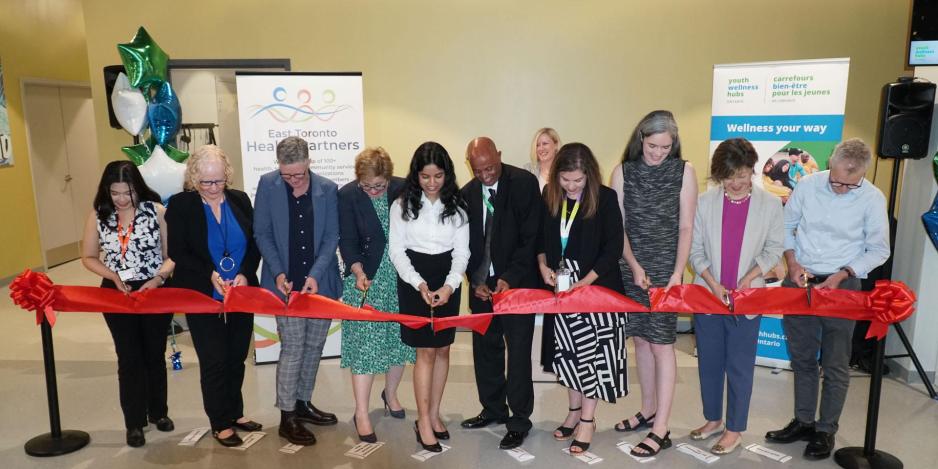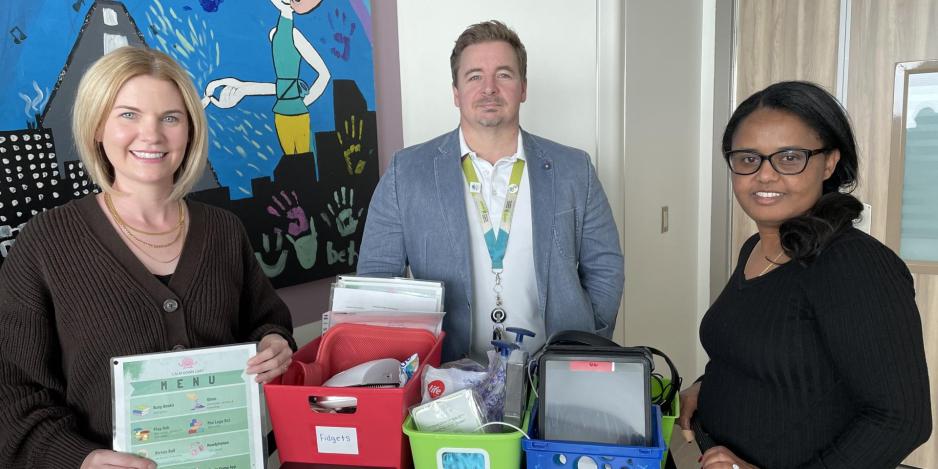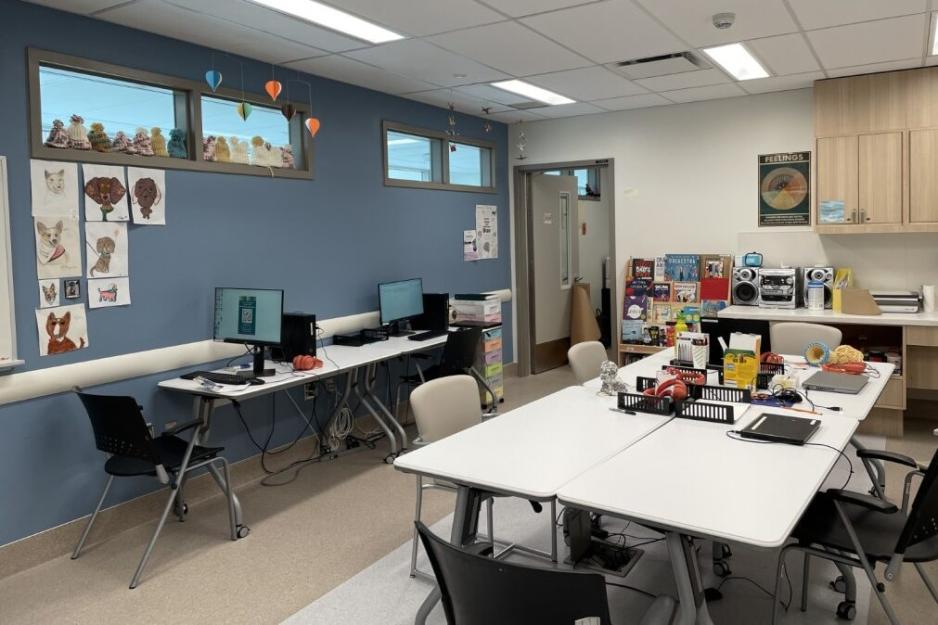As demand increases, Michael Garron Hospital (MGH) is reaffirming its commitment to child and youth mental health services with the addition and expansion of several key programs.
Mental health needs have been growing for at least a decade, especially in children and youth – a trend that has been seen at MGH and hospitals throughout Ontario. The Toronto Foundation recently reported that the number of Ontario youth who describe their mental health as “fair” or “poor” grew from 27% to 38% from 2019 to 2021.
According to Adina Hauser, MGH’s Manager of Child and Youth Health Services, numerous factors may explain the increased demand for care, including the ongoing effects of the pandemic, economic stressors, anxiety around climate change and the increased presence of technology and social media in our lives.
“Life is getting harder and there are multiple pressures on young people today,” Adina says. “If young people don’t build prevention and resiliency tools at an early age, we see them struggle, and many end up developing illnesses such as depression and anxiety."
Since 2019, MGH has launched and expanded several of its child and youth mental health programs, and has opened new, state-of-the-art spaces to house these services.
“The services we are expanding at MGH are innovative and fill gaps, providing integrated care where we see the most need,” Adina says.
Here are seven ways MGH is supporting child and youth mental health care.
1. Launched New Eating Disorders Program
In fall 2021, MGH launched a new eating disorders program for children and youth. This program includes an outpatient clinic that provides counselling and medical support, as well as a high-intensity program, NourishED Pathways.
NourishED Pathways serves 20 youth per year who were not successful in outpatient programs or were recently discharged as an inpatient. Patients get twice-weekly home visits from a child and youth worker and a teacher and spend one day a week at MGH, where they receive programming, meals and an opportunity to meet with their health providers. NourishED Pathways was recently named a Leading Practice by Health Standards Organization (HSO).
“This program has been successful. The stabilization rates for patients are improving as if they were in a more resource-intensive day program. It’s also less of a burden on youth and families because they don’t need to come to the hospital every day,” Adina says.
Read more about MGH’s new Child and Youth Eating Disorders Program.
2. Launching Two Innovative Programs for Children and Youth with Highest Needs
In fall 2023, MGH announced two new partnerships that will support children and youth with the highest needs.
The Extensive Needs Service (ENS), a partnership with Holland Bloorview Kids Rehabilitation Hospital, Grandview Kids and Surrey Place, will expand care for children and youth who have urgent and extensive needs in East Toronto.
This partnership is an expansion of the ENS program, launched in April 2023 and funded by the provincial government to address the growing complexity of care needs for Ontario families. MGH expects to launch its ENS program this year.
Read more about the Extensive Needs Service for children and youth.
In addition, MGH and WoodGreen are co-leading the creation of a community-based, intensive outreach team for youth with the highest needs. The team will be made up of case managers, therapists, peer support workers, a psychiatrist and others.
This team’s goal is to enhance the long-term health of youth and reduce emergency department visits and hospital admissions.
This program, funded by the Slaight Family Foundation, will reduce barriers by eliminating the need for referrals and will provide care where it makes most sense for youth – whether this is at the hospital, home, in the community or online.
Read more about MGH and WoodGreen’s new intensive outreach program.
3. Expansion of Transitional Youth Program
In 2019, MGH launched the Transitional Youth Program (TYP), which supports young people aged 16 to 29 in accessing mental health services as they transition from pediatric and youth programs to adult care.
Since its launch, the TYP Team has grown from two to three clinicians. In addition, two peer support workers were recently added to the team. These individuals with lived experience provide non-clinical support for youth, such as accompanying them to appointments, advocating for their needs and supporting them as they process new experiences.
“Youth are reporting how much they appreciate their peer support workers,” Adina says. “These are individuals who have their own lived experience, who can understand clients and can appreciate their journey.”
Read more about MGH's Transitional Youth Program.
4. Expanded Capacity of Anxiety Clinic
MGH’s Child and Youth Anxiety Clinic is in high demand, with more than 600 individuals treated each year.
Cognitive Behaviour Therapy (CBT) is offered at this clinic, with a focus on treating youth who have anxiety as a primary diagnosis, including those with generalized anxiety disorder, obsessive compulsive disorder, social anxiety disorder and trauma.
“Anxiety is often quite treatable in children and youth, but the ability to address it early is important, as it can have lifelong effects if left untreated into adulthood,” Adina says.
Keeping up with the high demand for the clinic has been a challenge, and the program often has a long or closed waitlist.
To address these issues, the hospital is working to expand the clinic by partnering with WoodGreen Community Services. As a part of a pilot program, a WoodGreen clinician is providing part-time support at MGH as an added resource to the team. The hope is to eventually build a satellite clinic at WoodGreen Community Services on Danforth Avenue, so that this program can be expanded to two locations and double its patient numbers.
Learn more about MGH’s Child and Youth Anxiety Clinic.
5. Joined as a Partner at Two Youth Wellness Hubs
MGH recently joined as a partner at Toronto East Youth Wellness Hub, located on the Danforth, and Thorncliffe Park Youth Wellness Hub at East York Town Centre. Both hubs are operated in partnership with other health and social service providers and offer free, low-barrier services to youth aged 12 to 25, with a focus on mental health supports, including counselling, psychiatry, peer support and case management.
In summer 2023, MGH celebrated the grand opening of the Thorncliffe Park Youth Wellness Hub, where it is an anchor partner. This hub serves youth in Thorncliffe Park and Flemingdon Park, two neighbourhoods that are home to some of the highest concentrations of individuals under the age of 25 in Toronto and where there is low access to mental health services despite high levels of need.
Learn more about Toronto East Youth Wellness Hub and Thorncliffe Park Youth Wellness Hub.
6. Introducing New Model of Care for Inpatients
MGH is in the process of implementing a new model of care, called Safewards, in its mental health units, including the Child and Youth Inpatient Mental Health Unit. The new approach is an evidence-based model of care that has been shown to reduce conflict on mental health units by 15% and containment measures by 24%. MGH is one of the first community hospitals in Ontario to participate in this program.
The model of care includes the introduction of several new interventions, including a Calm Down Cart: a cart with items and activities that are meant to help patients relax or distract them from distressing thoughts and emotions.
“This has been an effective non-medication-based intervention for our patients who are feeling in distress,” Adina says.
The cart has a paper menu with images of what is inside the cart, including sensory items (things you can smell, touch and hear), games and items that may provide comfort, such as headphones and face masks.
“Our patients don’t need to verbalize what they need. They can point at a picture of what they want,” Adina says. “It helps the staff, and the youth have really taken to it.”
Read more about the introduction of Safewards at MGH.
7. Opening Brand New Care Areas for Patients
As a part of its ongoing redevelopment, MGH is modernizing care spaces for its child and youth mental health patients.
In early 2023, the hospital’s new Slaight Family Child and Youth Mental Health Inpatient Unit opened inside the Ken and Marilyn Thomson Patient Care Centre. This new space is larger and brighter compared to the unit’s previous home in an older wing of the hospital.
The unit has colourful murals, a large classroom, an exercise space, as well as a sensory wall panel that provides a calming environment for patients.
“This is a mindfulness-inducing feature that we were able to add,” Adina says of the wall panel. “It provides a calming environment for patients if they need a break.”
Patients on the unit also have access to a new private mental health terrace. Previously, patients did not have outdoor access.
This year, the hospital opened a second brand-new space for child and youth mental health patients: a state-of-the-art outpatient clinic in the newly renovated K Wing, which opened in early February 2024.
